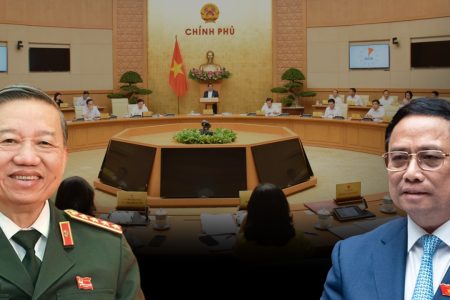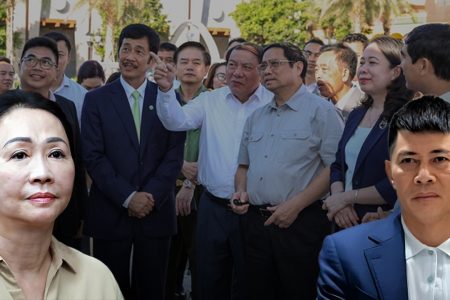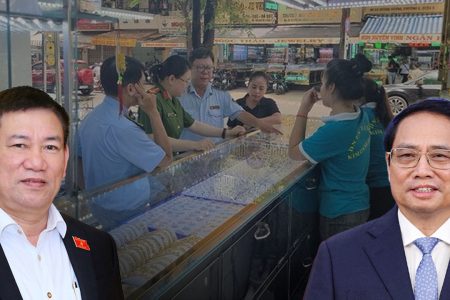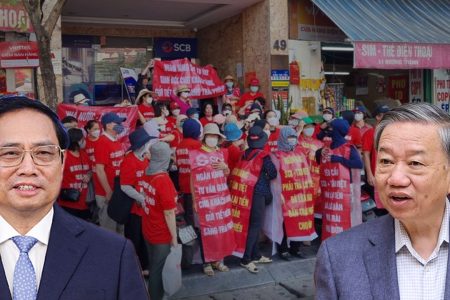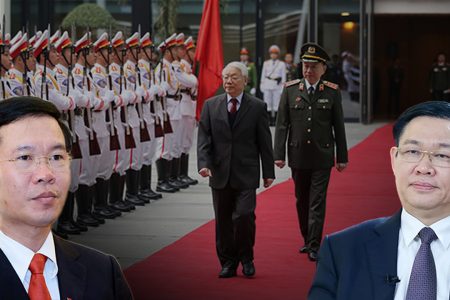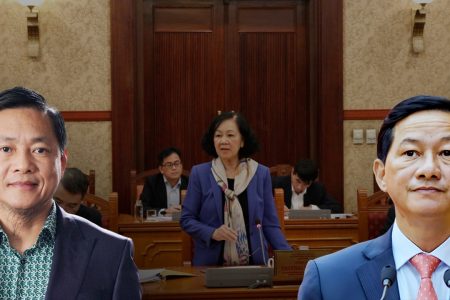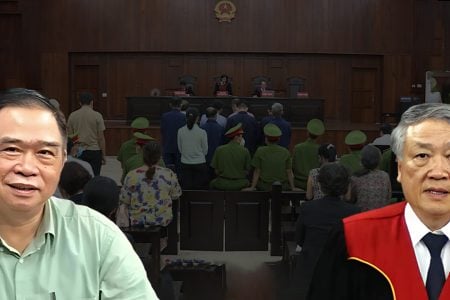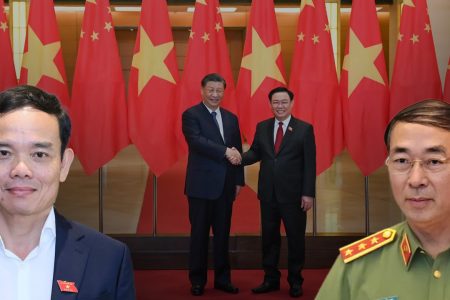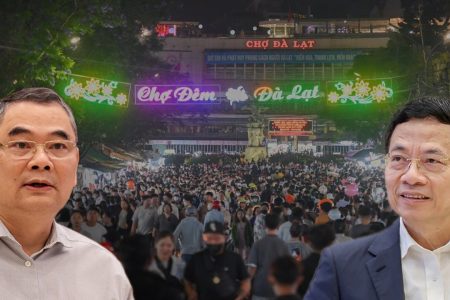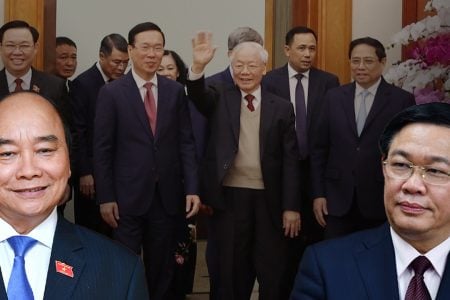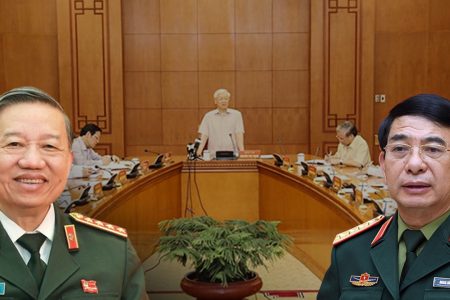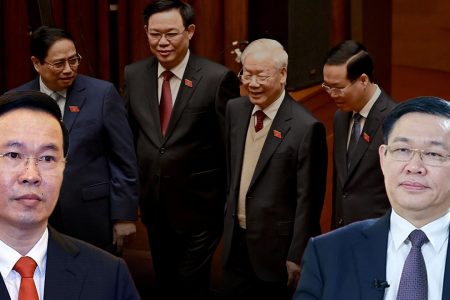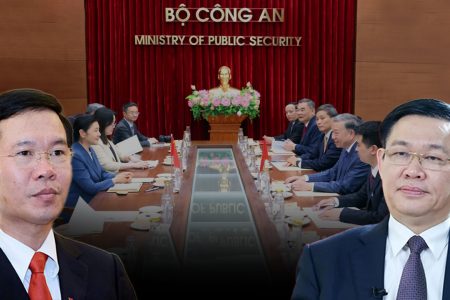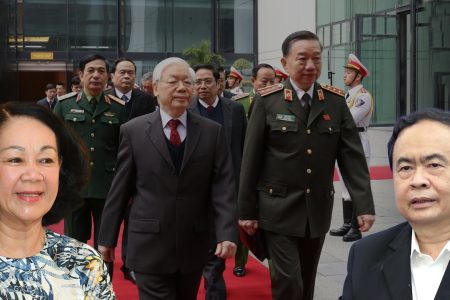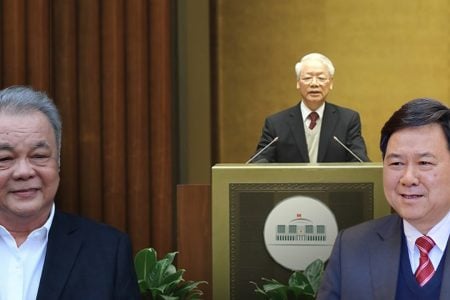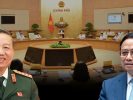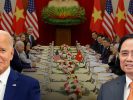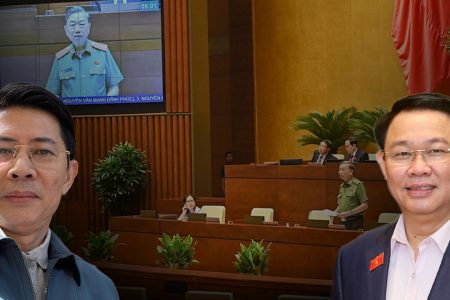
At a meeting with voters in Hanoi on June 23, 2022, General Secretary Nguyen Phu Trong spoke again about anti-corruption work. At the end of this month, the Central Committee will hold a national conference summarizing 10 years of anti-corruption work to review the period since the establishment of the Central Steering Committee on Anti-corruption directly under the Politburo.
This committee was chaired by Mr. Nguyen Phu Trong with the original name of the Central Steering Committee for Anti-corruption, established on February 1, 2013. By September 16, 2021, Mr. Trong had signed a decision to amend this committee to become the Central Steering Committee on Anti-corruption and Wrongdoings.
Journalist Tran Ngoc Tuan in the Czech Republic, a person who has always fought for democracy and human rights in Vietnam, said that if Vietnam wants to really fight corruption, the country must change its institutions:
“I don’t think there is a country that is absolutely anti-corruption. In Vietnam, anti-corruption is only against the navel downwards. That is, high-ranking officials are not being investigated for corruption. They only prune leaves on plants that are eaten by pests.
The best and most effective way is to change the root, change a whole tree, plant a new tree with the name of Democracy tree. There must be separation of powers and an independent press. In democratic countries, the press plays a huge role in supporting the government to fight corruption and limit corruption.
In short, in Vietnam to fight corruption, this mechanism must be completely changed. There must be competition between the parties for them to look at the party that is running the country. It has to be radically changed.”
In mid-December 2020, at the National Conference to summarize the anti-corruption work in the period of 2013 – 2020, the head of the Steering Committee, Mr. Nguyen Phu Trong, requested to build a strict prevention mechanism in which cadres cannot corrupt , a strict deterrent and punishment mechanism so cadres “do not dare to corrupt”; a mechanism that cadres have “no need for corruption.”
Also in order to prevent, detect and deal with corruption, last year, the Politburo issued Regulation No. 85 on inspecting and supervising the declaration of assets of officials of the Politburo and the Secretariat under the management of the Politburo. Later, some party members and scholars published an open letter asking General Secretary Nguyen Phu Trong to “publicize his assets” to “set an example.” At the end of October 2020, the Prime Minister of Vietnam signed and promulgated Decree No. 130/2020/ND-CP on control of assets and income of people with positions and powers in agencies, organizations and units.

According to some interested people, anti-corruption by decrees and documents is not effective. If you want to fight corruption, you have to work hard from within. Mr. Le Van Triet, former Minister of Trade once raised his opinion to RFA on asset declaration measures as a way to clean up the apparatus:
“Saying that, but it can’t be done, no one declares anything, sometimes when there is a prominent place, they will pull it out … then make a file, open a trial, and then conclude that it causes serious consequences due to poor organization… but nothing to solve. In my opinion, if you want to solve this problem, you must be strict from the inside, from the top down, strictly in the implementation organization. But if you don’t want to say anything, just say it out loud, give this document, that document, say that, who will listen, who will do it, go nowhere, they’ve run out of work...”
The declaration of assets and officials has been talked about in recent years when the villas costing from tens to hundreds of billions of officials appeared in the newspaper. Most recently, the villas of Mr. Chu Ngoc Anh (former Minister of Science and Technology, former Chairman of Hanoi People’s Committee) are assessed by some real estate experts to have a market price ranging from VND80-100 billion/ apartment. Meanwhile, according to current regulations, the salary of the chairman of Hanoi is just VND15.35 million/month.
Although forms of corruption are difficult to detect, its results can be seen by everyone, at least in the real estate market. If officials had to declare and explain the source of their assets publicly, corruption would certainly decrease. That is the comment of lawyer Tran Quoc Thuan, former Standing Deputy Chairman of the National Assembly Office with RFA on the morning of June 23, 2022:
“Corruption in Vietnam is now oozing out of its bones, so it must be treated with a special medicine. I suggest taking the appropriate steps. It is appropriate that from communes, wards and hamlets to have real freedom to stand for election and vote. Next is to the district level, city directly under the province and then up to the province, city directly under the central government. The elected bodies, the People’s Council and the National Assembly must have five to ten percent of non-party members to hear the true voice of the people.
In Vietnam now, all those in positions of power are party members, but corruption is the crime of those in positions of power. Thus, corruption comes from within the party. Now we have to carry out the sentences that the General Secretary said about fighting corruption. If you want to fight corruption, you must set an example on property. Setting an example is the Politburo, then the Secretariat, and the Central Committee. You publicize your assets and publish them in the People’s Daily newspaper for the people to read. And always, if anyone finds out that I have more than one billion in addition to the declared assets, or even ten billion, but the origin is unclear, please resign.”
At the National Conference to summarize the anti-corruption work in the 2013-2020 period, General Secretary Nguyen Phu Trong requested agencies, units and organizations to continue to improve and strictly implement regulations on openness, transparency and accountability in its operations; effectively control assets and incomes of persons with positions and powers; administrative reform and building a contingent of qualified, capable and reputable cadres, on par with tasks in the new period.
Thoibao.de (Translated)




